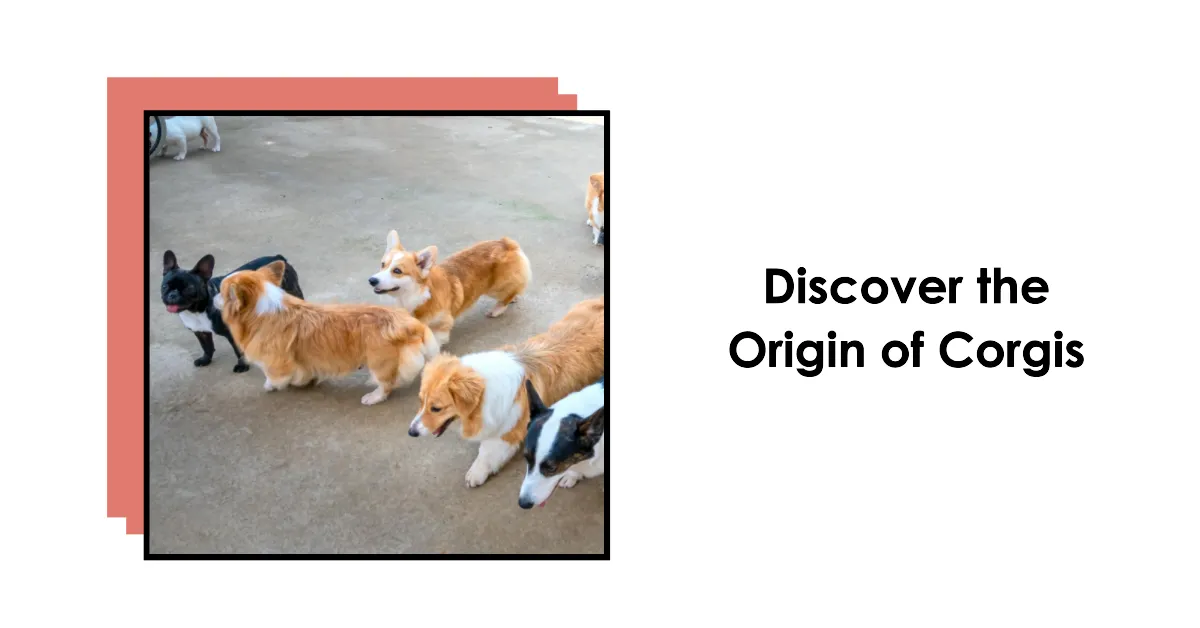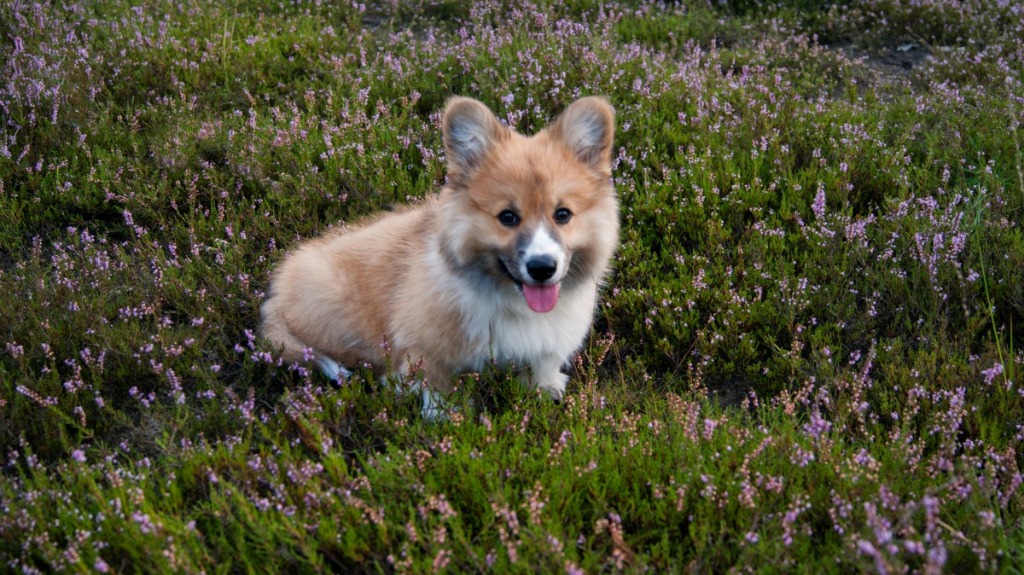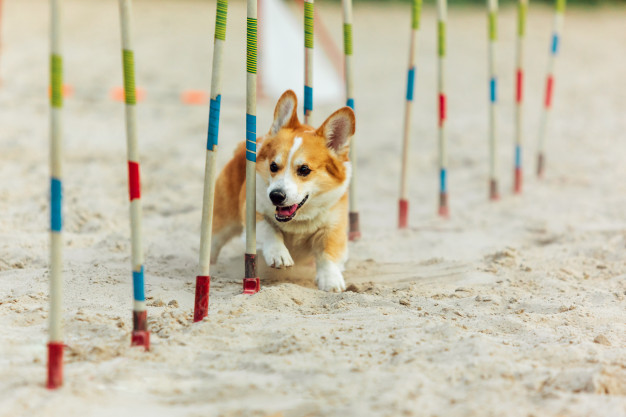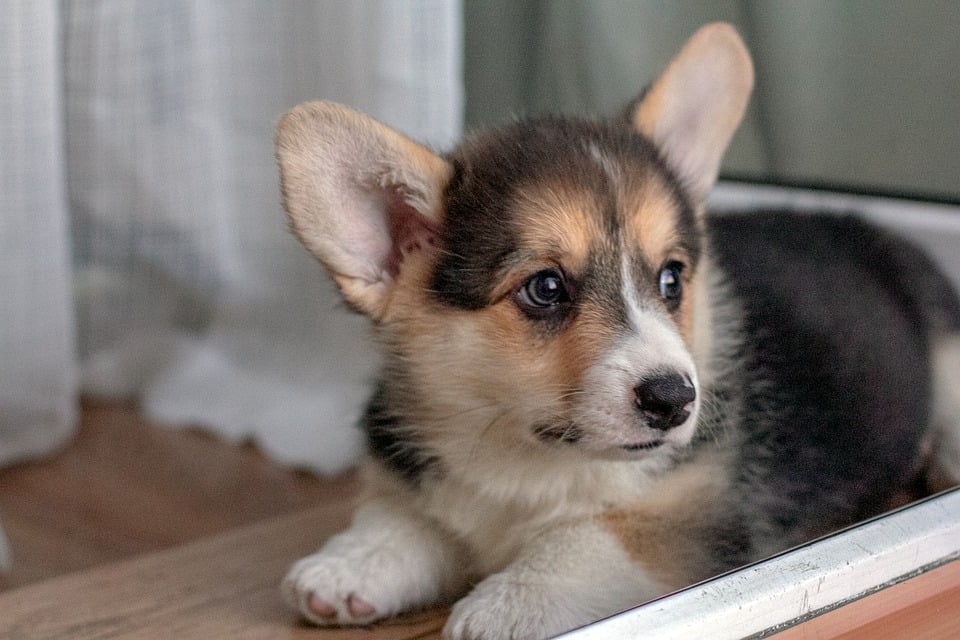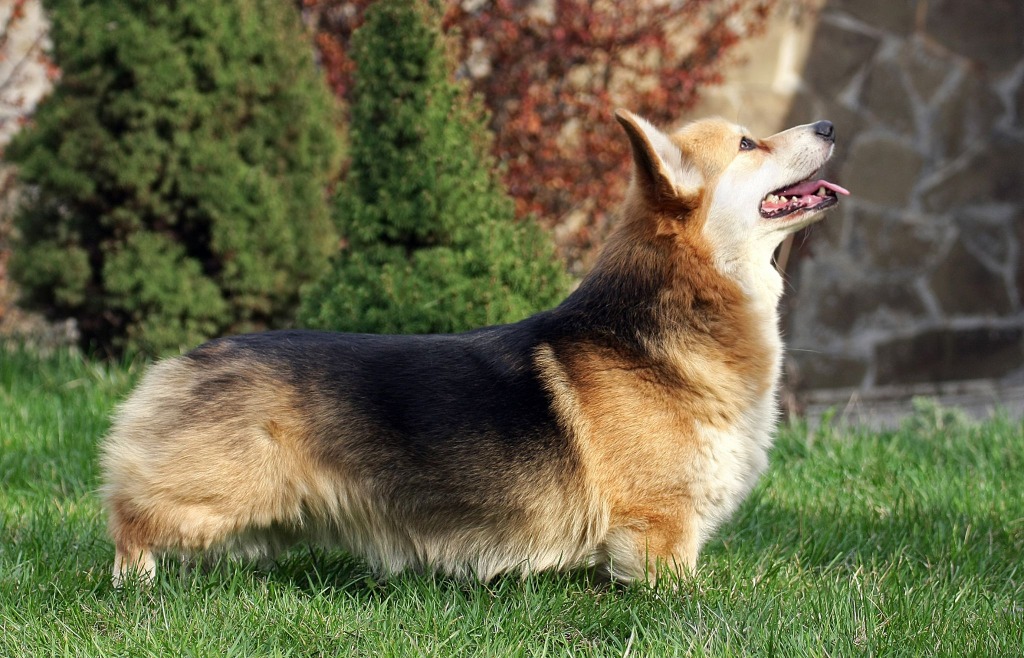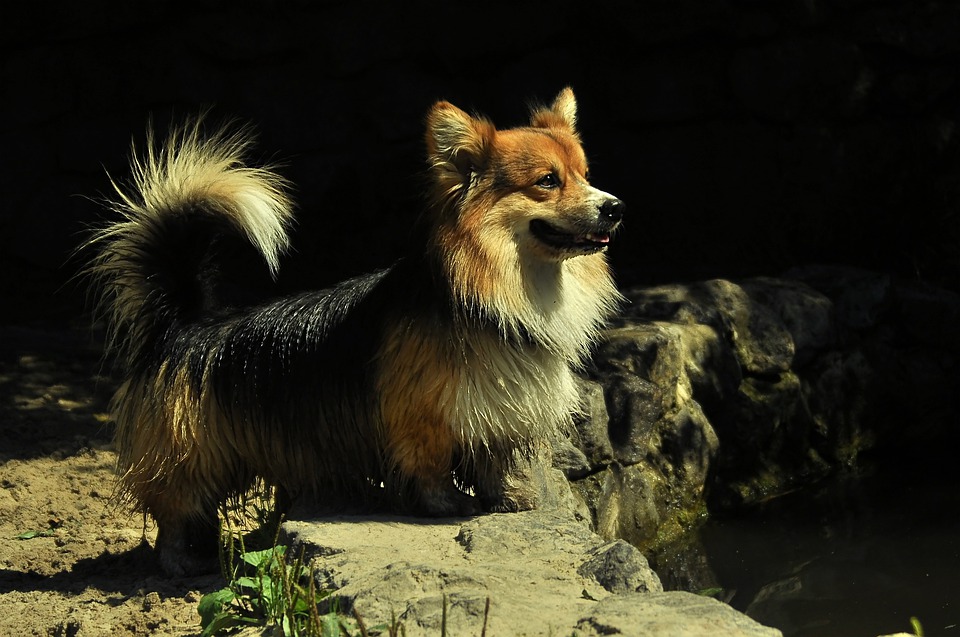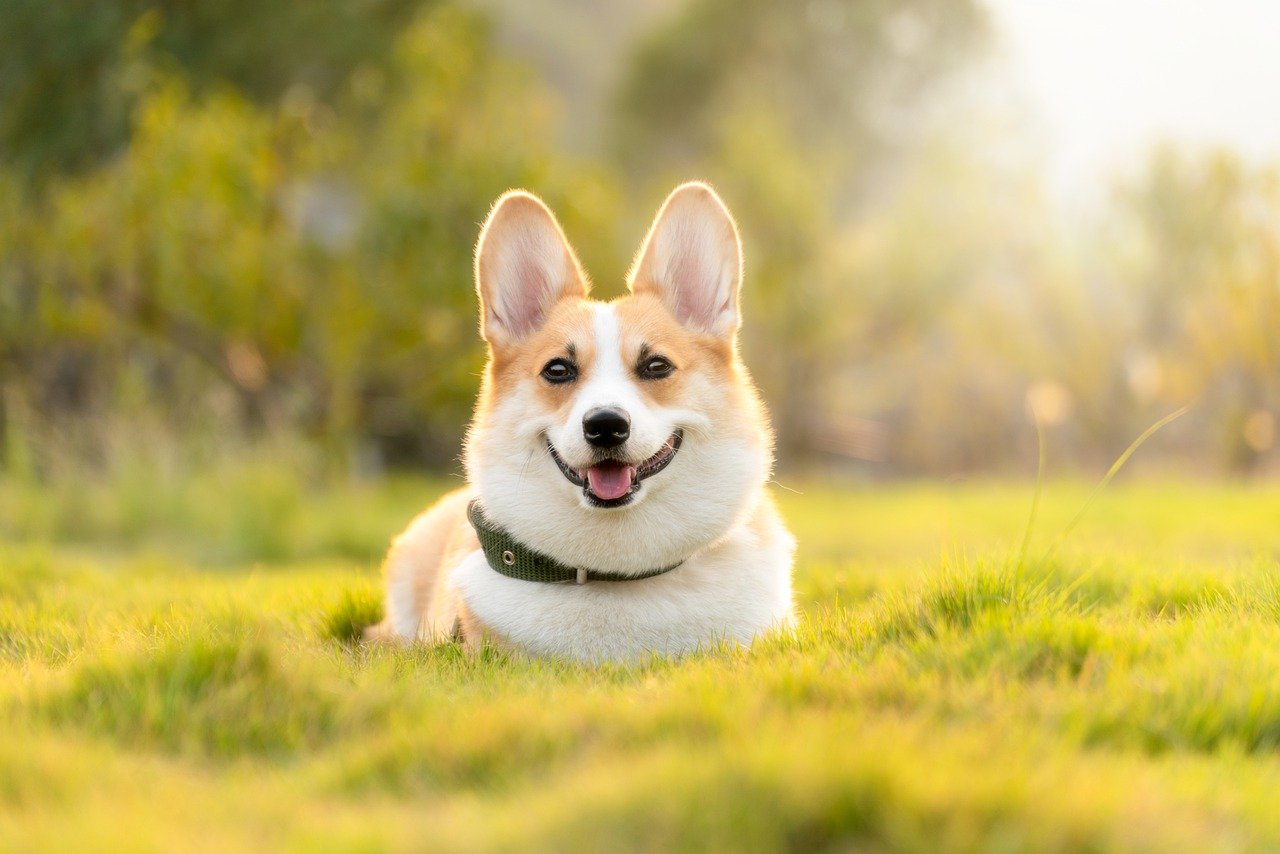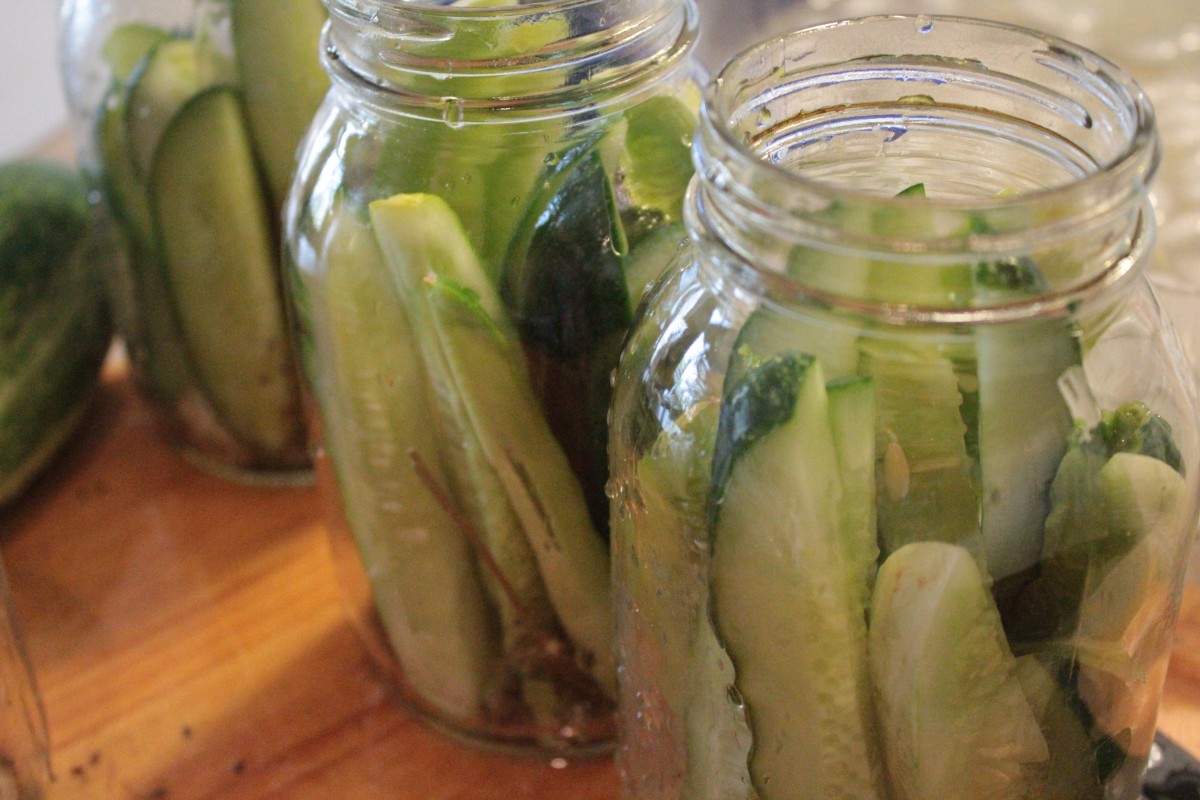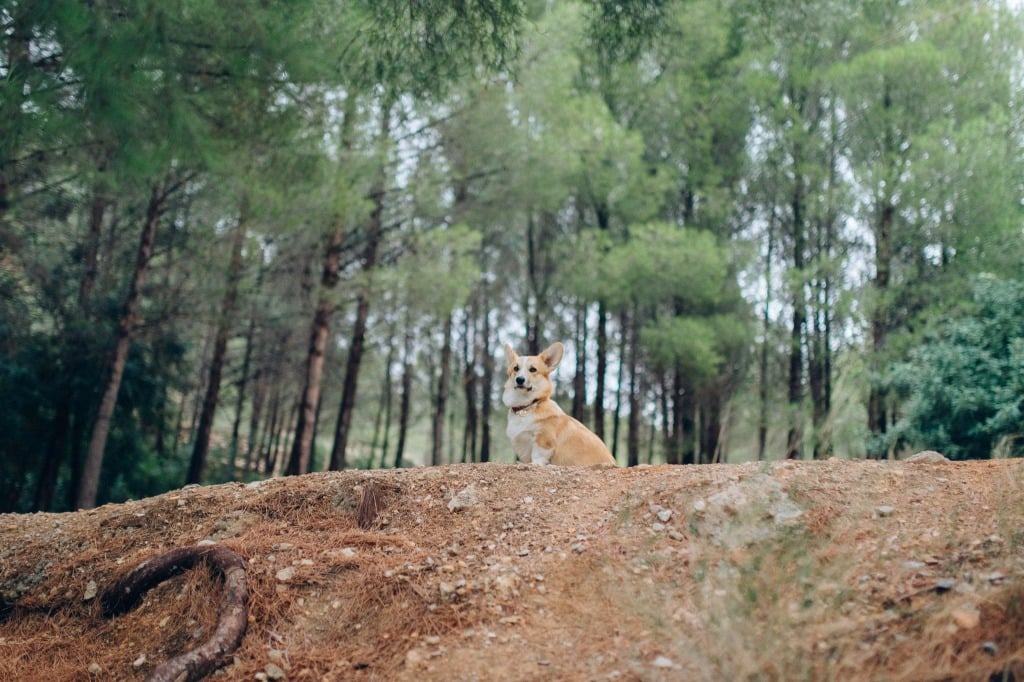How to Ease Your Corgis Separation Anxiety Naturally
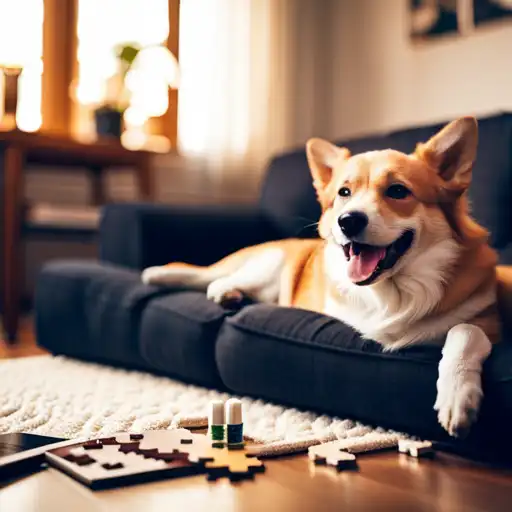
Do you ever feel anxious when you're away from your Corgi? Well, guess what? Your furry friend might be feeling the same way!
Separation anxiety can be tough for both you and your Corgi, but don't worry, there are natural ways to ease their stress. In this guide, we'll explore some effective techniques to help your Corgi feel more comfortable when you're not around.
From establishing a routine and providing mental stimulation to using calming scents and music, we've got you covered. We'll also discuss relaxation techniques and when it might be necessary to seek professional help.
So, grab a cup of tea, sit back, and let's learn how to ease your Corgi's separation anxiety naturally.
Understanding Corgi Separation Anxiety
To understand corgi separation anxiety, you need to recognize the signs and symptoms exhibited by your furry friend when you're away. Causes of corgi separation anxiety can vary, but common triggers include changes in routine, being left alone for long periods, or past traumatic experiences.
Your corgi may display signs such as excessive barking, destructive behavior, or going potty indoors. They may also become restless, pace around, or cling to you when you're about to leave.
It's important to pay attention to these signs as they indicate your corgi is experiencing distress when separated from you. Understanding the signs will help you take appropriate steps to ease their anxiety and ensure their safety and well-being.
Establishing a Routine for Your Corgi
Now that you understand the importance of establishing a routine for your Corgi, let's dive into the specific points that will help ease their separation anxiety naturally.
First, having a consistent daily schedule will provide your Corgi with a sense of security and predictability.
Next, familiarizing them with their surroundings can reduce their anxiety when they're alone.
Lastly, incorporating calming activities, such as puzzle toys or soothing music, can help relax and distract your Corgi during times of separation.
Consistent Daily Schedule
Establish a consistent daily schedule for your corgi to help alleviate separation anxiety naturally. Consistency in training and daily routines can provide a sense of security for your furry friend, reducing their anxiety when you're away.
Signs and symptoms of separation anxiety include excessive barking, destructive behavior, and even physical symptoms like trembling or pacing. By establishing a routine, you can create a predictable environment that your corgi can rely on.
Start by setting specific times for meals, walks, and playtime. Stick to these times as closely as possible, as sudden changes can disrupt your corgi's sense of security. Incorporate activities that mentally stimulate your corgi, such as puzzle toys or obedience training, to keep their mind occupied and alleviate anxiety.
Familiarize With Surroundings
Familiarize your corgi with their surroundings to establish a routine that helps alleviate separation anxiety naturally.
Dogs thrive on routine, and by introducing them to their surroundings, you can create a comforting and familiar environment for them. Start by gradually acclimating your corgi to different areas of your home. Let them explore each room and get comfortable in their own time. This will help them feel secure and reduce anxiety when they're alone.
Additionally, consider introducing new toys that they can play with while you're away. Interactive toys, puzzle toys, or treat-dispensing toys can keep them entertained and distracted, making their time alone more enjoyable.
Incorporate Calming Activities
To help ease your corgi's separation anxiety naturally, incorporate calming activities into their routine by engaging them in soothing exercises and interactive play. Here are some ideas to get you started:
- Massage Therapy: Gently rub your corgi's body using long, sweeping strokes to help them relax. Focus on areas like the neck, back, and hindquarters.
- Mental Stimulation: Keep your corgi's mind occupied with puzzle toys or treat-dispensing games. This will divert their attention from your absence and provide a sense of entertainment.
- Yoga for Dogs: Yes, you read that right! Practicing simple yoga poses with your corgi can help them release tension and promote relaxation. Start with gentle stretches and observe how their body responds.
- Aromatherapy: Certain scents, like lavender or chamomile, have calming effects on dogs. Consider using a natural remedy like a diffuser or a scented collar to create a soothing environment for your furry friend.
Incorporating these calming exercises and natural remedies into your corgi's routine can help alleviate their separation anxiety and create a sense of comfort and security. Remember, consistency is key when establishing a routine for your corgi.
Providing Enrichment and Mental Stimulation
One way to help ease your corgi's separation anxiety naturally is by providing them with enrichment and mental stimulation.
Interactive toys and puzzle games can be great options for keeping your corgi's mind engaged and distracted while you're away. These toys are designed to challenge your corgi's problem-solving skills and keep them entertained for hours.
Look for toys that require your corgi to work for treats or toys that have hidden compartments for them to discover. When you provide your corgi with these types of toys, it gives them something to focus on and helps alleviate their anxiety.
Just make sure to choose toys that are safe and durable, so your corgi can enjoy them without any risk of choking or injury.
Gradual Desensitization to Alone Time
Now that you've provided your Corgi with plenty of mental stimulation, it's time to tackle the next step in easing their separation anxiety: gradual desensitization to alone time.
This involves slowly increasing the amount of time your Corgi spends alone, while using positive reinforcement techniques to reward calm behavior.
Slowly Increasing Alone Time
Start by gradually increasing the amount of time you spend away from your corgi to help them overcome separation anxiety naturally. Here are some tips to help you slowly increase the alone time for your furry friend:
- Start with short periods of separation: Begin by leaving your corgi alone for just a few minutes at a time. This will help them get used to the idea of being alone and build their independence.
- Use positive reinforcement: Reward your corgi with treats or praise when they remain calm during your absence. This will help them associate being alone with positive experiences.
- Extend the time gradually: Once your corgi is comfortable with shorter periods of alone time, slowly increase the duration. Add a few minutes each time, allowing them to adjust at their own pace.
- Create a safe space: Set up a cozy area for your corgi with their bed, toys, and familiar scents. This will provide them with a sense of security and comfort when you're not around.
Positive Reinforcement Techniques
To continue helping your corgi overcome separation anxiety naturally, gradually desensitize them to alone time by implementing positive reinforcement techniques.
Positive reinforcement methods involve rewarding your corgi for calm and relaxed behavior when they're alone. This helps them associate being alone with positive experiences and reduces their anxiety.
One behavior modification technique you can try is leaving your corgi alone for short periods of time and rewarding them with treats or praise when they remain calm. Slowly increase the duration of alone time, always rewarding them for good behavior.
Another effective technique is using interactive toys or puzzles that provide mental stimulation and keep them occupied while you're away.
Creating a Safe Environment
Continue helping your corgi overcome separation anxiety naturally by gradually desensitizing them to alone time through creating a safe environment. Here are a few steps you can take to create a comforting space for your furry friend:
- Provide a cozy den: Set up a designated area for your corgi with a comfortable bed, blankets, and toys. This will create a sense of security and familiarity.
- Use natural remedies: Consider using calming essential oils or natural pheromone sprays in the designated area. These can help relax your corgi and reduce anxiety.
- Establish a routine: Stick to a consistent schedule for feeding, exercise, and alone time. This will help your corgi feel more secure and know what to expect.
- Gradual alone time: Start by leaving your corgi alone for short periods, gradually increasing the duration. Offer treats and positive reinforcement when they remain calm during these practice sessions.
Using Calming Scents and Music
To help ease your corgi's separation anxiety naturally, incorporate calming scents and music into their environment.
Using aromatherapy and soothing scents for dogs can have a calming effect on your furry friend. Lavender, chamomile, and valerian are popular scents known for their relaxing properties. You can use essential oils or purchase specially designed dog-friendly products. Just make sure to dilute the oils and never apply them directly to your corgi's skin.
Additionally, classical music has been shown to have positive effects on dogs' anxiety levels. The soft melodies and rhythmic patterns can create a soothing atmosphere for your corgi. Try leaving some classical music playing softly in the background while you're away.
Implementing Relaxation Techniques
How can you help your corgi relax and reduce their separation anxiety naturally? Implementing relaxation techniques can be a great way to provide your furry friend with a sense of calm and security. Here are some strategies you can try:
- Relaxation exercises: Teach your corgi simple tricks like 'sit' or 'lie down' and reward them with treats. This not only helps them focus but also promotes relaxation.
- Mindfulness techniques: Practice deep breathing exercises with your corgi. Sit together in a quiet room and take slow, deep breaths. This can help both of you relax and create a peaceful atmosphere.
- Massage: Gently massage your corgi's muscles, starting from their head and working your way down to their tail. This can help release tension and promote relaxation.
- Music therapy: Play soothing classical music or nature sounds in the background while your corgi is alone. The calming melodies can help distract them from their anxiety.
Seeking Professional Help if Needed
If your corgi's separation anxiety persists despite your best efforts, it may be necessary to seek professional help. Sometimes, no matter how hard you try, your furry friend may require additional support.
Professional trainers specialize in working with dogs who experience separation anxiety. They can assess your corgi's behavior, develop a customized training plan, and guide you through the process. Through professional training, your corgi can learn coping mechanisms, gradually build confidence, and become more comfortable when left alone.
In some cases, medication options may be considered. While medications should always be used as a last resort and under the guidance of a veterinarian, they can be beneficial for dogs with severe separation anxiety. Medications can help reduce your corgi's anxiety levels, making it easier for them to learn and adapt to being alone.

